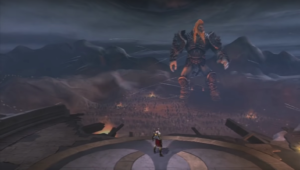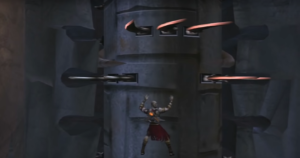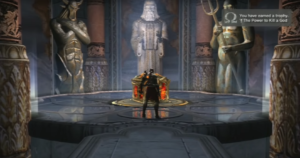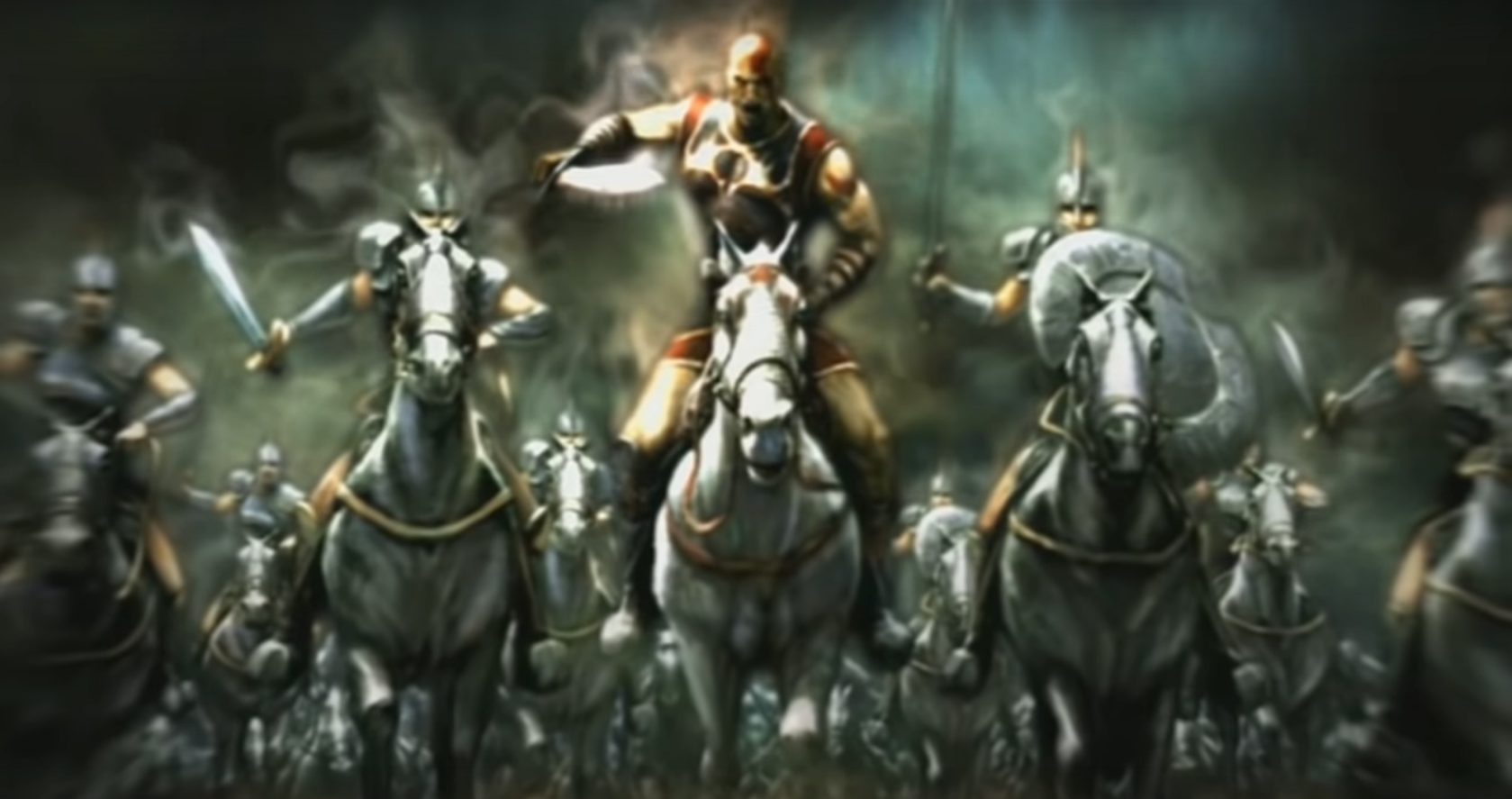Ever since I first picked up a video game controller, I’ve been a PlayStation guy. Starting with the original console and going all the way to the PS4, I’ve never owned a Nintendo or Xbox console.
Instead of Mario, Link, Kirby, Sonic, Master Chief, Bill Gates and the Red Ring of Death being my childhood mascots, I was enthralled by Crash, Spyro, Jak and Daxter, Sly Cooper, Ratchet and Clank, Nathan Drake, Solid Snake and Sackboy.
Yet in my time playing games, I never experienced the “God of War” series. There was no way my parents would let me get that game, as the first installment came out when I was 10 years old.
However, over Christmas I bought the “God of War Saga” collection and started the first game and had quite the experience.
I got to play a hack and slash game that didn’t try to be pretentious. It knew what it was and put emphasis on really fun gameplay and breathtaking setpieces, especially for the PS2 era.
The game focuses on Greek mythology, using Ancient Greece and its many Gods as the driving force behind a gripping story.
 You control Kratos, a mortal man who made a deal with Ares to become the greatest warrior ever, but at a terrible cost: the lives of his wife and daughter.
You control Kratos, a mortal man who made a deal with Ares to become the greatest warrior ever, but at a terrible cost: the lives of his wife and daughter.
Haunted by constant nightmares and visions of his dirty deeds, he sets out on a quest to kill Ares, both to get revenge and fulfill a duty to the Goddess Athena to rid him of his visions. He goes from ruined cities, barren deserts, precarious temples and literally to hell and back on his mission.
The story moves at a brisk pace and includes many exciting twists and turns, as it slowly reveals the backstory of Kratos. It’s straightforward and simple, complementing the satisfying gameplay.
The main weapon Kratos uses is the Blades of Chaos, brutal blades that are permanently chained to his flesh. The blades are used to initiate a flowing combat system, with a staggering amount of combos and special moves used to kill enemies.
Along with this, the game is very bloody for its era. Kratos opens up his foes’ guts, breaks their necks and slices them in half, surrounded by a bloody red paste.
Part of mastering the game is deciding which moves work best on a particular enemy, which helped add variety to the combat.
Kratos also finds more ways to turn minotaurs, Cerberus, medusas, satyrs and cyclopses into a bloody mess with magic powers earned throughout the game. Each of these powers is associated with a God, such as Hades, Zeus and Poseidon.
 Brutal combat isn’t the only thing “God of War” offers, as there are plenty of platforming and puzzle sections to break up the action.
Brutal combat isn’t the only thing “God of War” offers, as there are plenty of platforming and puzzle sections to break up the action.
They range from the simple, like moving a giant crossbow into position to open a door, to the complex, such as moving and rotating giant blocks to make a formation that unlocks a gate.
Then there are insane platforming challenges like moving a stone cube across a room before spikes come up from the ground and kill Kratos, or climbing up an incredibly long moving cylinder covered with spikes.
Exploration is also rewarded in this game. Many levels have an open ended design and looking through every nook and cranny of an area yields some great finds.
There are chests scattered everywhere, usually containing orbs that replenish your health, magic and red orbs that fill your experience meter. This is how you upgrade your abilities.
Each magic power and every weapon has a series of upgrades that can be bought to make them more powerful. Upgrading the Blades of Chaos also adds new moves to add to your impressive arsenal of combos.
You are also able to find Gargon eyes and Phoneix feathers in chests. When you collect six of these, it increases your maximum health and magic, respectively.
For a hack and slash game, the collectibles add another layer of variety to keep the experience fresh.
 Another interesting mechanic is the camera system. It is cinematic and isn’t able to be controlled by the player. It moves along with the player and it works better than you may think.
Another interesting mechanic is the camera system. It is cinematic and isn’t able to be controlled by the player. It moves along with the player and it works better than you may think.
There are a few moments where it gets stuck behind something and you may take an unfair hit or two, but these are few and far between. As a whole, it’s done very well and is a good trade off for being able to use the right analog stick to roll.
An additional bonus this game has is a selection of extra content unlocked after beating it. Players can look at concept art of the various monsters in the game and early designs for Kratos with the development team speaking of their inspiration.
There are also cut levels with commentary put over them, including a flying level that didn’t make it into the game. There are trailers, teasers for the next “God of War” story, unlockable costumes and a series of challenge missions that open up even more blocked content.
It is something that I think we took for granted back then, but when is the last time you remember a triple A game loaded with this kind of content? It really feels like something extra went into this game, and you can see the love the developers had for their work and for the players that experienced it. Nowadays this kind of content would be locked behind DLC or the “Ultra Special Super Deluxe Edition.” It really gives you a sense that you’ve earned proper bang for your buck.
All in all, “God of War” is a great game from the PS2 era that still holds up today. There is enough variety in the gameplay that keeps it fresh, and the story is a memorable revenge tale. I encourage anyone who enjoys games to try this one out if you haven’t already.
Rating: 9/10
Join me this summer, as I plan on reviewing every game in the series, in a series of articles I like to call, The Summer of War.
Henry Wolski
Executive Editor


